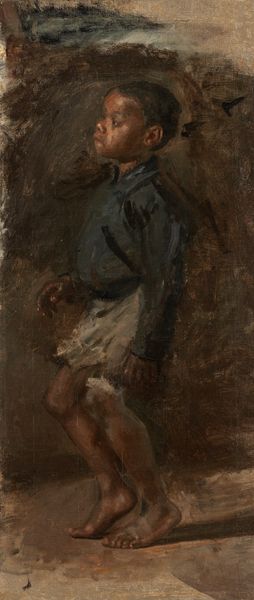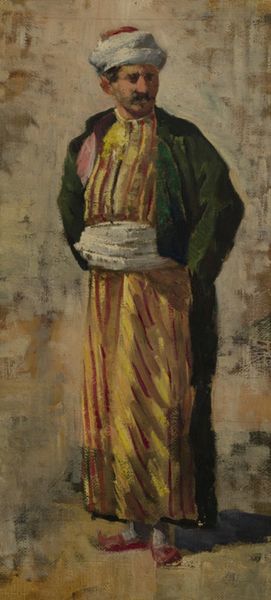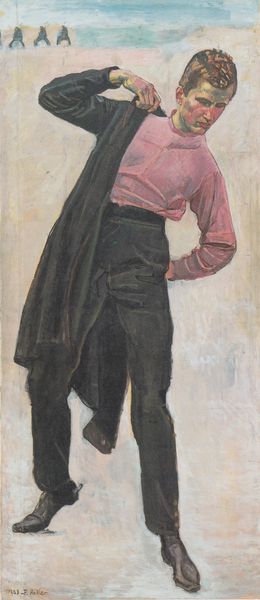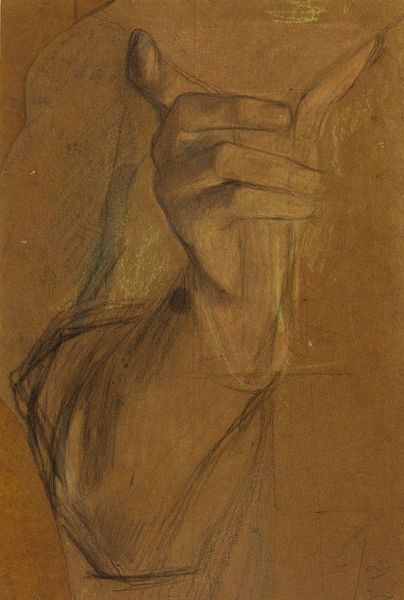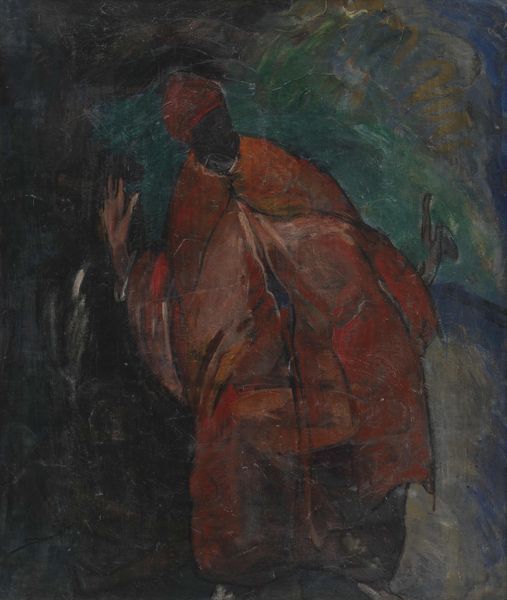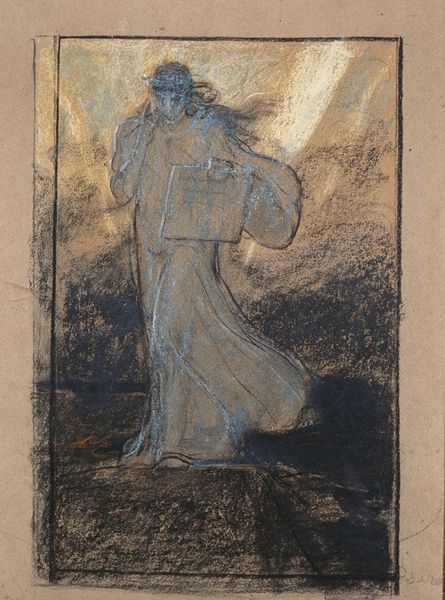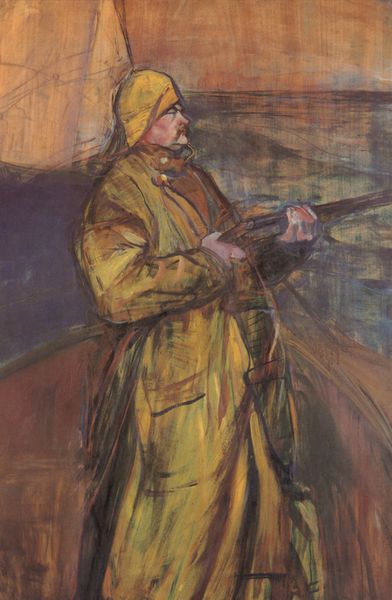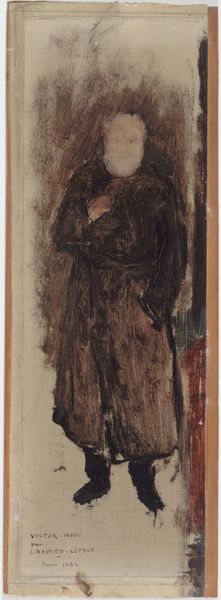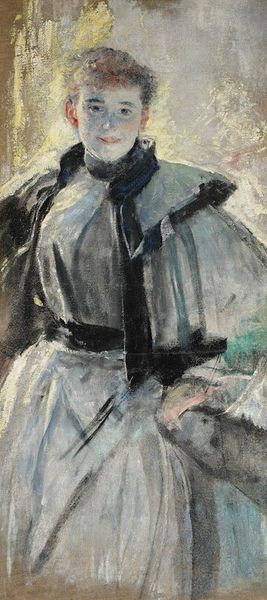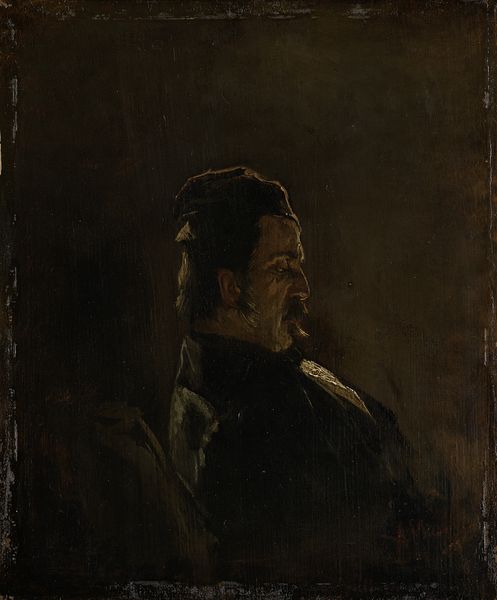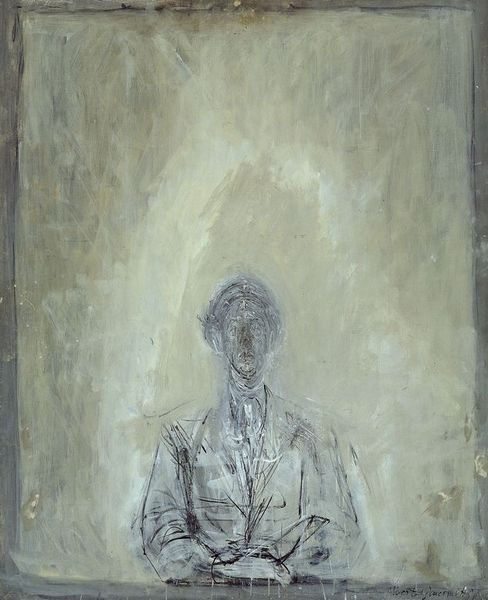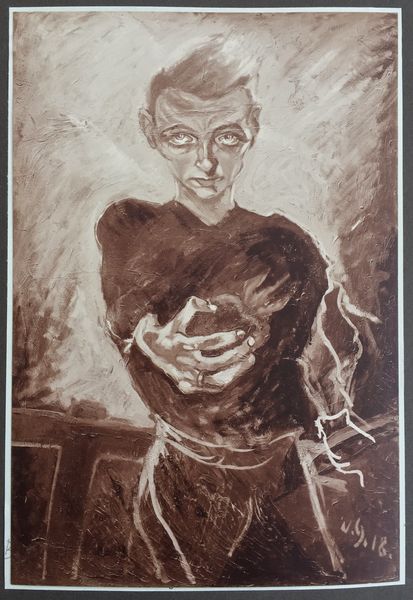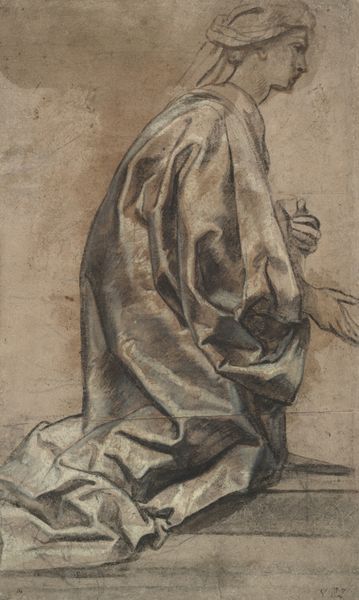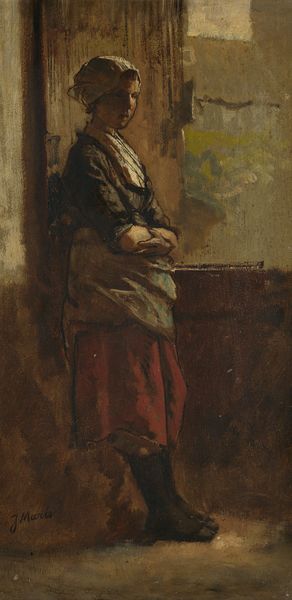
oil-paint, canvas, impasto
#
portrait
#
art-nouveau
#
self-portrait
#
oil-paint
#
charcoal drawing
#
oil painting
#
canvas
#
impasto
#
underpainting
#
symbolism
#
portrait drawing
#
portrait art
Dimensions: 60 cm (height) x 38.5 cm (width) (Netto)
Curator: Standing before us is Kristian Zahrtmann’s "Lady Macbeth. Study," an oil on canvas created in 1899. There's a sort of understated drama to this work. Editor: I see it too. There’s a muted quality, almost like a half-remembered dream, despite the overt reference. The color palette is restricted. It conveys this feeling of inner turmoil, a subtle and restrained intensity. It does make me uncomfortable. Curator: Restraint is an interesting observation. We often picture Lady Macbeth dripping in sinister intent, but here Zahrtmann presents her in a moment of, what, perhaps self-reflection? There is also some art-nouveau and symbolism here. She is not necessarily stripped of agency, but it might be worth asking: to what extent has her image as evil perpetrator been the result of a long-standing historical erasure of female suffering in similar instances of violence and power. Editor: Absolutely. It’s compelling to see her stripped bare of stereotypical evil, inviting us to see a human being. The positioning of the hands almost like she's washing them, echoes her famous line, "Out, damned spot!" Curator: And consider Zahrtmann's own life; a gay man in a deeply conservative era, he perhaps understood something about suppressed identities and desires. Do you think this could be self portraiture, of some kind? I have read suggestions in the literature, though there is little certainty on this topic. Editor: I love that reading, especially considering that the painting presents us with someone resisting their fate. The androgynous interpretation of Lady Macbeth here offers such an intriguing dialogue between personal identity, gender performance, and societal expectations in the light of historical persecution and power structures. Curator: Exactly! Maybe this study isn't just about Shakespeare’s character, but a commentary on societal roles assigned to individuals. What really lingers with me is that question about performativity in real life—how often do we wear masks, driven by fear and societal demands, concealing inner realities as potent as anything on stage? Editor: The piece definitely challenges us to look beyond familiar narratives. It compels us to not only revisit classic texts, but also to constantly investigate power dynamics that extend far beyond fiction and inform who we are, individually and as a society.
Comments
No comments
Be the first to comment and join the conversation on the ultimate creative platform.
